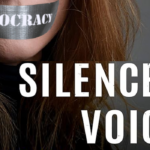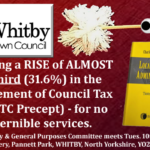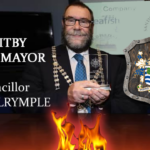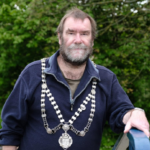In Defence of Local Democracy
by Guest Author SBC Councillor Rob BARNETT [Lab.], who serves in the Streonshalh ward along with Councillor Sandra TURNER [Con.] – whose contribution to the debate would be warmly welcomed.
~~~~~
Firstly, thank you for granting access to your social media network. Long may it continue.
The Fourth Estate is an essential pre-requisite to the democratic process and, as such, it must be rich in opinion; varied, unfettered and truly independent. All of which brings me to the gist of what I would like to say.
Forgive my melancholy, but as a member of SBC representing Streonshalh ward since 2015, I thought it might be time to reflect on my thoughts and experiences.
At the outset, I was excited by the prospect of being able to participate fully in the democratic process. I am passionate about local government, and view this as an essential means through which a voice can be given to the many, not just the few. Surely, this is the essence of the “Big Society”.
Also in my induction, I was enthused by the integrity and common sense embodied in the Nolan Principles of good governance and due process, reproduced below.

I am particularly mindful of that last injunction – “be willing to challenge poor behaviour wherever it occurs”.
Furthermore, given my professional and academic background, I have always been a keen student of politics and, in particular, democratic values.
In 2015, it was with this passion, and at the ripe old age of nearly 70, that I was elected to SBC, representing the Labour Party.
Having gained the confidence of people in my ward, I contemplated what makes for good governance at any level. Furthermore, given my educational background, it was clear that, as a bare minimum, I have a duty to stick up for the hard-won principles of the democratic process.
I refer, in particular, to the words often attributed to Voltaire, “I may not agree with what you say, but I shall defend to my death your right to say it.” Tom Paine expounded fundamental principles of a democratic society embodying equality in “The Rights of Man”. There are many others who expounded views that have translated into the great movements of the past 200 years.
How does this stack up to my experiences of decision making in SBC?
Have I any influence whatsoever regarding decisions made? How are these decisions made? Do we have a listening and inclusive culture in our Local Government?
I can only come to the conclusion that there is a long way to go. I offer the following illustrations:
- Democratic debate in the chamber is regularly shut down – motions put forward and no debate allowed.
- Questions to Cabinet and Officers are inadequately answered.
- Minutes and agendas for the Directorate are not produced.
- The Strong Leader model and the Cabinet protocol leave little scope for influencing decisions.
- Few resources exist for the use of opposition.
- Scrutiny is in a state of flux.
- Proper socio-economic cost benefit analyses are lacking.
- Full Council is simply a “rubber stamping” process.
- Voter turnout is poor, many have “no confidence” in the Council or a belief that a vote would make any difference anyway.
- We are the ‘Low Pay Capital of Britain’.
- Connectivity is poor, both public transport and the internet.
- Housing is inadequate
- Many rely on food banks.
I could certainly go on . . .
So, we have a lot to do.
We need a Council that is going to be strong and bold, one that is going to listen, one that is going to act.
The Rt Hon Goodwill’s comment that wealth will ‘trickle down’ is both insulting and wrong.
The ‘jam tomorrow’ will never come, given our current performance. For many, this pie in the sky promise will, as ever, be far too little too late.
These are the problems; what are the solutions?
It is worth remembering the quotation, “The price of liberty is eternal vigilance”. Thus, the answer lies with us.
We need to scrutinise and question our decision makers.
Each and every resident has one vote, they need to use it.
Each and every person has one voice, they need to shout!
We need to get our message across. Use the media, use channels of communication. Stay informed. Tell your families, friends and colleagues to follow the North Yorks Enquirer and other worthy social media outlets to build momentum around the voice of the many.


![WTC: The OLD GUARD’s New Recruits [Pt.1]](http://nyenquirer.uk/wp-content/uploads/2024/12/MULHERAN_Old_Guard_Recruit-150x150.png)
























Comments are closed.